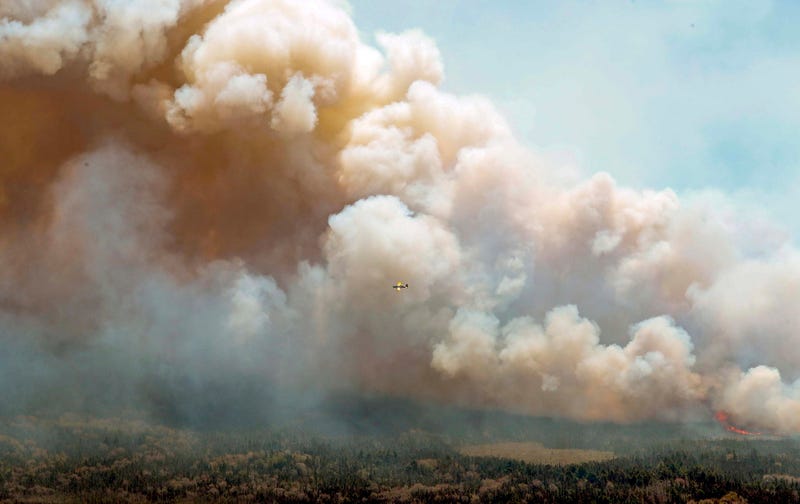
Buffalo, NY (WBEN) - You could actually see it Tuesday. In some cases, you could smell it. And some even said they could 'taste' it.
Smoke from wildfires in Canada has led to another air quality advisory for Western New York Wednesday, and the health impacts from this are somewhat unclear, one expert tells WBEN.
Meteorologist Andy Parker says these fires are coming from around the St. Lawrence River Valley. He says the weather pattern is moving the smoke our way.
"Our weather system is actually now controlled by this low pressure, which is over top of I would call it New England, if you will. And it's spinning a northerly breeze across Western New York, it's grabbing the smoke from those fires, and bringing it southward across Lake Ontario in these giant plumes, bubbles of smoke," says Parker.
Parker says it's a rarity, because in the summertime, our prevailing winds come up from the south and southwest. "But what's rare this year is that we have this prolonged period of northerly wind at the time that the fires are going so you'd have to have number one the fires going, number two, a weather pattern in existence that continually brings a northerly breeze and the way that the weather patterns across the United States," explains Parker.
Assistant Professor Meng Wang at the University of Buffalo's Department of Epidemiology and Environmental Health says there are several reasons why this is happening. "We recently had high temperatures last week, and that it's possible that some dry places could be neglected by wildfire," says Wang. "It's also dependent on the weather, for example, the wind direction, wind speed could blow this smoke towards Western New York. So wildfire smoke is like a regional issue."
Wang says the smoky air causes a health concern. "The long term effect of wildfire smoke, there's no clear answer yet because many studies are trying to understand that the health factor of long term smoke is here, but the short term effect has been evident," notes Wang. He says short term inhaling the smoke could make them more susceptible to illnesses.

